Submitted:
17 April 2023
Posted:
17 April 2023
You are already at the latest version
Abstract
Keywords:
1. Introduction
2. Materials and Methods
2.1. Sample
2.2. Methods
2.2.1. The biochemical method for assessing the content of vitamin D in the blood of expedition participants
2.2.2. Substantiation of an integrated approach to assessing the functional states of expedition members
2.3. Procedure
3. Results
3.1. Vitamin D status among expedition members
3.2. A comparative analysis of objective indicators of the functional state of the participants with different levels of vitamin D in blood
3.3. Comparative analysis of subjective and projective indicators of the functional state of participants with different vitamin D levels
3.4. The relationship between the degree of vitamin D content in the blood of the participants in a sea expedition and their functional state indicators
4. Discussion
5. Conclusion
Author Contributions
Funding
Institutional Review Board Statement
Informed Consent Statement
Data Availability Statement
Acknowledgments
Conflicts of Interest
References
- Gjelten, H.; Nordli, Ø.; Isaksen, K.; Førland, E.; Sviashchennikov, P.; Wyszyński, P.; Prokhorova, U.; Przybylak, R.; Ivanov, B.; Urazgildeeva, A. Air temperature variations and gradients along the coast and fjords of western Spitsbergen. Polar Research. 2016, 35, 29878. [Google Scholar] [CrossRef]
- Padrtová, B.; Trávníčková, Z. The Arctic Research Report: Political-Security, Economic and Scientific-Research Aspects. Analysis for the Ministry of Foreign Affairs of the Czech Republic; Institute of International Relations: Prague, Czech Republic, 2017. [Google Scholar]
- Korneeva, Y. The Adverse Environmental Impact Factors Analysis on Fly-In-Fly-Out Personnel at Industrial Enterprises. Int. J. Environ. Res. Public Health. 2022, 19, 997. [Google Scholar] [CrossRef] [PubMed]
- Descamps, S.; Aars, J.; Fuglei, E.; Kovacs, K.; Lydersen, C.; Pavlova, O.; Pedersen, Å.; Ravolainen, V.; Strøm, H. Climate change impacts on wildlife in a High Arctic archipelago – Svalbard, Norway. Global Change Biology 2017, 23, 490–502. [Google Scholar] [CrossRef]
- Pecl, G.T.; et al. Biodiversity redistribution under climate change: Impacts on ecosystems and human well-being. Science 2017, 355, eaai9214. [Google Scholar] [CrossRef] [PubMed]
- Thierfelder, T.; Evengård, B. CLINF: an integrated project design. In Nordic Perspectives on the Responsible Development of the Arctic: Pathways to Action (ed. Nord, D.C.); Springer International Publishing: New York, USA, 2021; pp. 71–92. [Google Scholar] [CrossRef]
- Ma, Y.; Destouni, G.; Kalantari, Z.; et al. Linking climate and infectious disease trends in the Northern. Arctic Region. Sci Rep. 2021, 11, 20678. [Google Scholar] [CrossRef] [PubMed]
- Omazic, A.; et al. Identifying climate-sensitive infectious diseases in animals and humans in Northern regions. Acta Vet. Scand 2019, 61, 53. [Google Scholar] [CrossRef]
- Harper, S.L.; Cunsolo, A.; Babujee, A.; et al. Climate change and health in North America: literature review protocol. Syst Rev. 2021, 10, 3. [Google Scholar] [CrossRef] [PubMed]
- Harper, S.L.; Wright, C.; Masina, S.; Coggins, S. Climate change, water, and human health research in the Arctic. Water Secur. 2020, 10, 100062. [Google Scholar] [CrossRef]
- Hasnulin, V.I. Human health and cosmogeophysical North factors. Human ecology. 2013, 12, 3–13. [Google Scholar] [CrossRef]
- Atkov, O.Y.; Gorokhova, S.G.; Serikov, V.V.; Alchinova, I.B.; Polyakova, M.V.; Pankova, N.B.; Karganov, M.Yu. , Baranov, V.M. Results of medical and psychophysiological studies during the circumnavigation of the Arctic flight. Bulletin of the Russian Academy of Medical Sciences. 2019, 74, 261–271. [Google Scholar] [CrossRef]
- Selye, H. Stress without distress; Lippincott: Philadelphia, USA, 1974. [Google Scholar]
- Rochette, L.; Dogon, G.; Vergely, C. Stress: Eight Decades after Its Definition by Hans Selye: “Stress Is the Spice of Life”. Brain Sciences. 2023, 13, 310. [Google Scholar] [CrossRef] [PubMed]
- Domuschieva-Rogleva, G.; Iancheva, T.; Shopov, A. Dynamics of anxiety and perceived stress among the participants in the xxv Antarctic expedition. Journal of Applied Sports Sciences. 2017, 2, 31–41. [Google Scholar] [CrossRef]
- Nicolas, M.; Martinent, G.; Palinkas, L.; Suedfeld, P. Dynamics of stress and recovery and relationships with perceived environmental mastery in extreme environments. Journal of Environmental Psychology. 2022, 83, 101853. [Google Scholar] [CrossRef]
- Pankova, N.B.; Alchinova, I.B.; Cherepov, A.B.; Yakovenko, E.N.; Karganov, M.Y. Cardiovascular system parameters in participants of Arctic expeditions. Int J Occup Med Environ Health. 2020, 33, 819–828. [Google Scholar] [CrossRef] [PubMed]
- Lede, E.; Pearce, T.; Furgal, C.; et al. The role of multiple stressors in adaptation to climate change in the Canadian Arctic. Reg Environ Change 2021, 21, 50. [Google Scholar] [CrossRef]
- Smith, N.; Kinnafick, F.; Saunders, B. Coping Strategies Used During an Extreme Antarctic Expedition. Journal of Human Performance in Extreme Environments 2017, 13, 1. [Google Scholar] [CrossRef]
- Tishova, Y.A.; Vorslov, L.O.; Zhukov, A.Y.; Kalinchenko, S.Y. The prevalence of D-hormone (25OHD3) deficiency in obese patients in Russia: a retrospective population-based study. In Materials of the VII International Congress ISSAM; RUDN University: Moscow, Russia, 2013; pp. 78–79. [Google Scholar]
- Nikolaeva, V.V.; Tereshchenko, L.F.; Volobuev, V.V. The role of vitamin D in the development of dental diseases (literature review). Medical sciences/Colloquium-journal 2019, 10, 66–69. [Google Scholar] [CrossRef]
- Hossein-nezhad, A.; Holick, M.F. Vitamin D for health: A global perspective. Mayo Clin Proc. 2013, 88, 720–755. [Google Scholar] [CrossRef]
- Zittermann, A.; Trummer, C.; Theiler-Schwetz, V.; Lerchbaum, E.; März, W.; Pilz, S. Vitamin D and Cardiovascular Disease: An Updated Narrative Review. Int J Mol Sci. 2021, 22, 2896. [Google Scholar] [CrossRef]
- Anderson, J.L.; May, H.T.; Horne, B.D.; Bair, T.L.; Hall, N.L.; Carlquist, J.F.; et al. Relation of Vitamin D deficiency to cardiovascular risk factors, disease status, and incident events in a general healthcare population. Am J Cardiol. 2010, 106, 963–968. [Google Scholar] [CrossRef]
- Merhi, Z.; Doswell, A.; Krebs, K.; Cipolla, M. Vitamin D alters genes involved in follicular development and steroidogenesis in human cumulus granulosa cells. J Clin Endocrinol Metab. 2014, 99, E1137–E1145. [Google Scholar] [CrossRef] [PubMed]
- Malyavskaya, S.I.; Zakharova, I.N.; Kostrova, G.N.; Lebedev, A.V.; Golysheva, E.V.; Suranova, I.V.; Maykova, I.D.; Evseeva, E.A. Provision with vitamin D of the population of different age groups living in the city of Arkhangelsk. Questions of modern pediatrics. 2015, 15, 681–685. [Google Scholar] [CrossRef]
- Baevsky, R.M.; Ivanov, G.G.; Chireikin, L.V.; Gavrilushkin, A.P.; Dovgalevsky, P.Ya., Kukushkin, Yu.A.; Mironova, T.F.; Prilutsky, D.A.; Semenov, A.V.; Fedorov, V.F.; Fleishman, A.N.; Medvedev, M.M. Analysis of heart rate variability using various electrocardiographic systems (part 1). Bulletin of arrhythmology. 2001, (24), URL: http://www.vestar.ru/article.jsp?id=126 (date of access: 02.09.2022). 2022.
- Jeong, H.; Hong, S.; Heo, Y.; Chun, H.; Kim, D.; Park, J.; et al. Vitamin D status and associated occupational factors in Korean wage workers: Data from the 5th Korea National Health and Nutrition Examination Survey (KNHANES 2010-2012). Ann Occup Environ Med. 2014, 26, 28. [Google Scholar] [CrossRef] [PubMed]
- Ward, M.; Berry, D.J.; Power, C.; Hyppönen, E. Working patterns and Vitamin D status in mid-life: A cross-sectional study of the 1958 British birth cohort. Occup Environ Med. 2011, 68, 902–907. [Google Scholar] [CrossRef] [PubMed]
- Bannai, A.; Tamakoshi, A. The association between long working hours and health: A systematic review of epidemiological evidence. Scand J Work Environ Health. 2014, 40, 5–18. [Google Scholar] [CrossRef] [PubMed]
- Virtanen, M.; Ferrie, J.E.; Singh-Manoux, A.; Shipley, M.J.; Stansfeld, S.A.; Marmot, M.G.; et al. Long working hours and symptoms of anxiety and depression: A 5-year follow-up of the Whitehall II study. Psychol Med. 2011, 41, 2485–2494. [Google Scholar] [CrossRef]
- Aganov, D.S.; Tyrenko, V.V.; Toporkov, M.M. The level of vitamin D in military personnel serving in the far north of the Russian Federation. Medico-biological and socio-psychological problems of safety in emergency situations 2020, 1, 64–69. [Google Scholar] [CrossRef]
- Alefishat, E.; Abu Farha, R. Determinants of vitamin d status among Jordanian employees: Focus on the night shift effect. Int J Occup Med Environ Health. 2016, 29, 859–870. [Google Scholar] [CrossRef]
- Romano, A.; Vigna, L.; Belluigi, V.; Conti, D.M.; Barberi, C.E.; Tomaino, L.; et al. Shift work and serum 25-OH vitamin D status among factory workers in Northern Italy: Cross-sectional study. Chronobiol Int. 2015, 32, 842–847. [Google Scholar] [CrossRef]
- Singh, R.J.; Taylor, R.L.; Reddy, G.S.; Grebe, S.K. C-3 epimerase can account for a significant proportion of total circulating 25-hydroxyvitamin D in infants, complicating accurate measurement and interpretation of vitamin D status. J Clin Endocrinol Metab. 2006, 91, 3055–3061. [Google Scholar] [CrossRef]
- Holick, M.F.; Binkley, N.C.; Bischoff-Ferrari, H.A.; Gordon, C.M.; Hanley, D.A.; Heaney, R.P.; Murad, M.H.; Weaver, C.M. Evaluation, treatment, and prevention of vitamin D deficiency: An Endocrine Society clinical practice guideline. J Clin. Endocrinol. Metab. 2011, 96, 1911–1930. [Google Scholar] [CrossRef] [PubMed]
- Leonova, A.B. Structural-integrative approach to the analysis of human functional states. Bulletin of Moscow University. Ser. 14. Psychology. 2007, 1, 87–103. [Google Scholar]
- Prokhorov, A.O.; Valiullina, M.E.; Gabdreeva, G.S.; Garifullina, M.M.; Mendelevich, V.D. Psychology of States; Publishing house "Cogito-Center": Moscow, Russia, 2011. [Google Scholar]
- Dubrovinskaya, N.V.; Farber, D.A.; Bezrukikh, M.M. Psychophysiology of the child: Psychophysiological foundations of children's valueology; Humanitarian publishing center VLADOS: Moscow, Russia, 2000. [Google Scholar]
- Raspopin, E.V. Methods of studying and evaluating mental states. News of the Ural Federal University. Ser. 1, Problems of education, science and culture 2016, 22, 129–137. [Google Scholar]
- Boyko, I.M.; Mosyagin, I.G. Psychophysiological flight safety in the European North of Russia: monograph; Publishing house of the Northern State Medical University: Arkhangelsk, Russia, 2011. [Google Scholar]
- Mosyagin, I.G.; Khugaeva, S.G.; Boyko, I.M. Psychophysiological strategies of adaptive professiogenesis of trawl fleet sailors in the conditions of the Arctic North: monograph; Publishing house of the Northern State Medical University: Arkhangelsk, Russia, 2013. [Google Scholar]
- Korneeva, Y.; Simonova, N. Job stress and working capacity among fly-in-fly-outworkers in the oil and gas extraction industries in the Arctic. International Journal of Environmental Research and Public Health 2020, 17, 7759. [Google Scholar] [CrossRef] [PubMed]
- Methodological guide A_2556-02_MS. Psychophysiological testing device UPFT-1/30. - "Psychophysiologist"; NPKF "Medicom MTD": Taganrog, Russia, 2004.
- Luscher, M.; Scott, I. The Luscher Color Test; Random House: New York, USA, 1969. [Google Scholar]
- Sobchik, L.N. Color selection method. Modification of the eight-color Luscher test. Practical guidance; Rech: St. Petersburg, Russia, 2001. [Google Scholar]
- Aminev, G.A. Instruction and interpretation of the eight-color test based on mathematical processing. Mathematical methods of engineering psychology 2010, 3, 19–24. [Google Scholar]
- Wallnofer, H. Der Luscher-Farbtest zur Diagnose des vegetativen Verhaltens. Arzt. Prax. 1966, 18, 2348–2352. [Google Scholar]
- Korneeva, Y. The Job Performance of Fly-In-Fly-Out Workers in Industrial Enterprises (on the Example of Oil and Gas Production, Diamond Mining Production, and Construction). Safety. 2022, 8, 76. [Google Scholar] [CrossRef]
- Korneeva, Y.; Simonova, N. Analysis of Psychological Risks in the Professional Activities of Oil and Gas Workers in the Far North of the Russian Federation. Behav. Sci. 2018, 8, 84. [Google Scholar] [CrossRef]
- Doskin, V.A.; Lavrent’eva, N.A.; Miroshnikov, M.P.; Sharay, V.B. Test of differentiated self-assessment of the functional state. Quest. Psychol. 1973, 6, 141–145. [Google Scholar]
- Provisional guidelines on standard international age classifications; United nations: New York, USA, 1982; Series M, No.74.
- Suplotova, L.A.; Avdeeva, V.A.; Pigarova, E.A.; Rozhinskaya, L.Y.; Troshina, E.A. Vitamin D deficiency in Russia: the first results of a registered, non-interventional study of the frequency of vitamin D deficiency and insufficiency in various geographic regions of the country. Problems of Endocrinology. 2021, 67, 84–92. [Google Scholar] [CrossRef]
- Apostolakis, M.; Armeni, E.; Bakas, P.; Lambrinoudaki, I. Vitamin D and cardiovascular disease. Maturitas. 2018, 115, 1–22. [Google Scholar] [CrossRef] [PubMed]
- Kondratieva, E.I.; Loshkova, E.V. Vitamin D deficiency: gender characteristics. Endocrinology: news, opinions, training 2021, 10, 18–25. [Google Scholar] [CrossRef]
- Chen, L.Y.; Ye, X.H.; Cheng, J.L.; Xue, Y.; Li, D.; Shao, J. The association between vitamin D levels and heart rate variability in patients with type 2 diabetes mellitus. Medicine (Baltimore). 2022, 101, e30216. [Google Scholar] [CrossRef] [PubMed]
- Canpolat, U.; Özcan, F.; Özeke, O.; et al. Impaired cardiac autonomic functions in apparently healthy subjects with vitamin D deficiency. Ann Noninvasive Electrocardiol. 2015, 20, 378–385. [Google Scholar] [CrossRef]
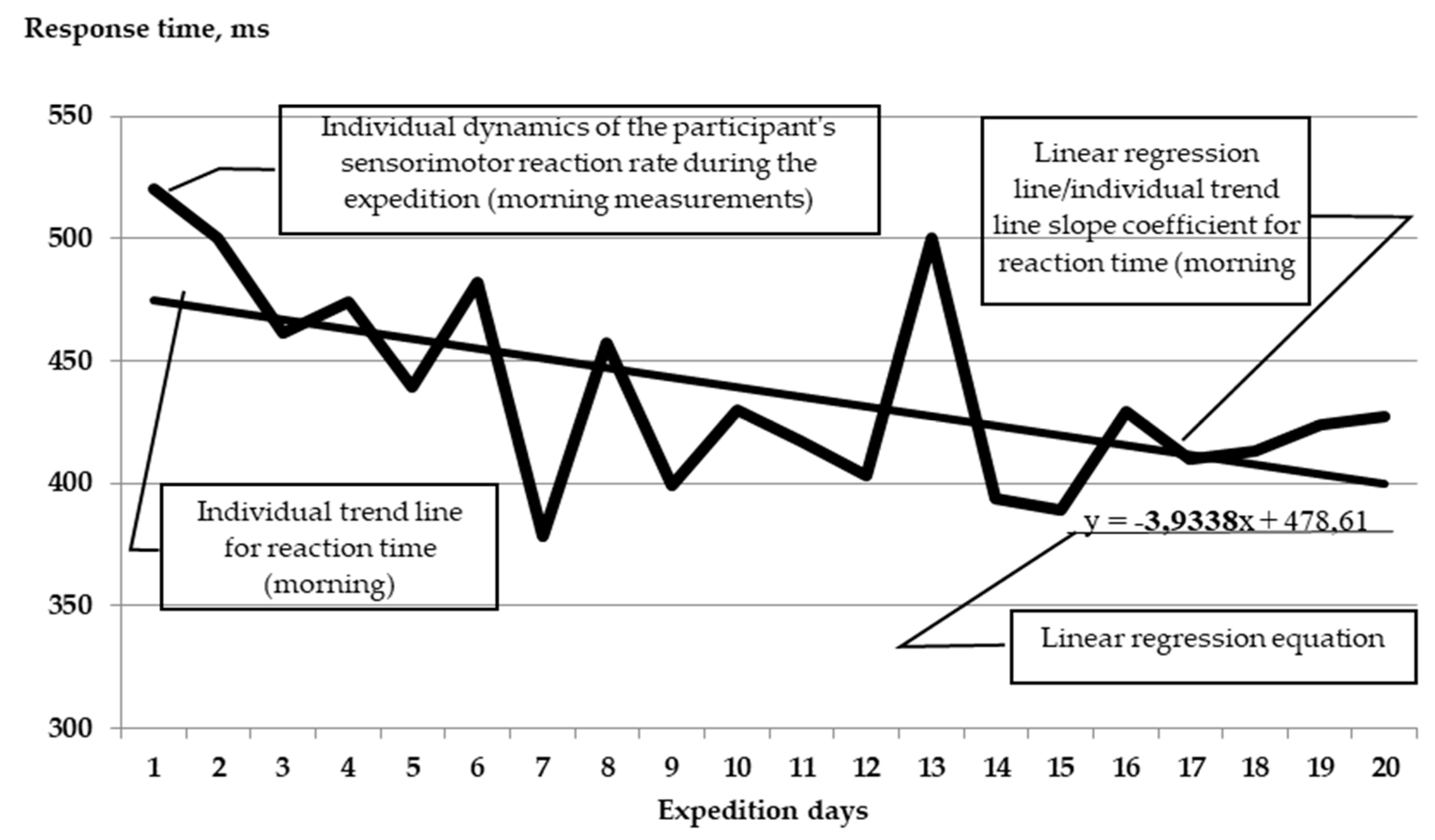
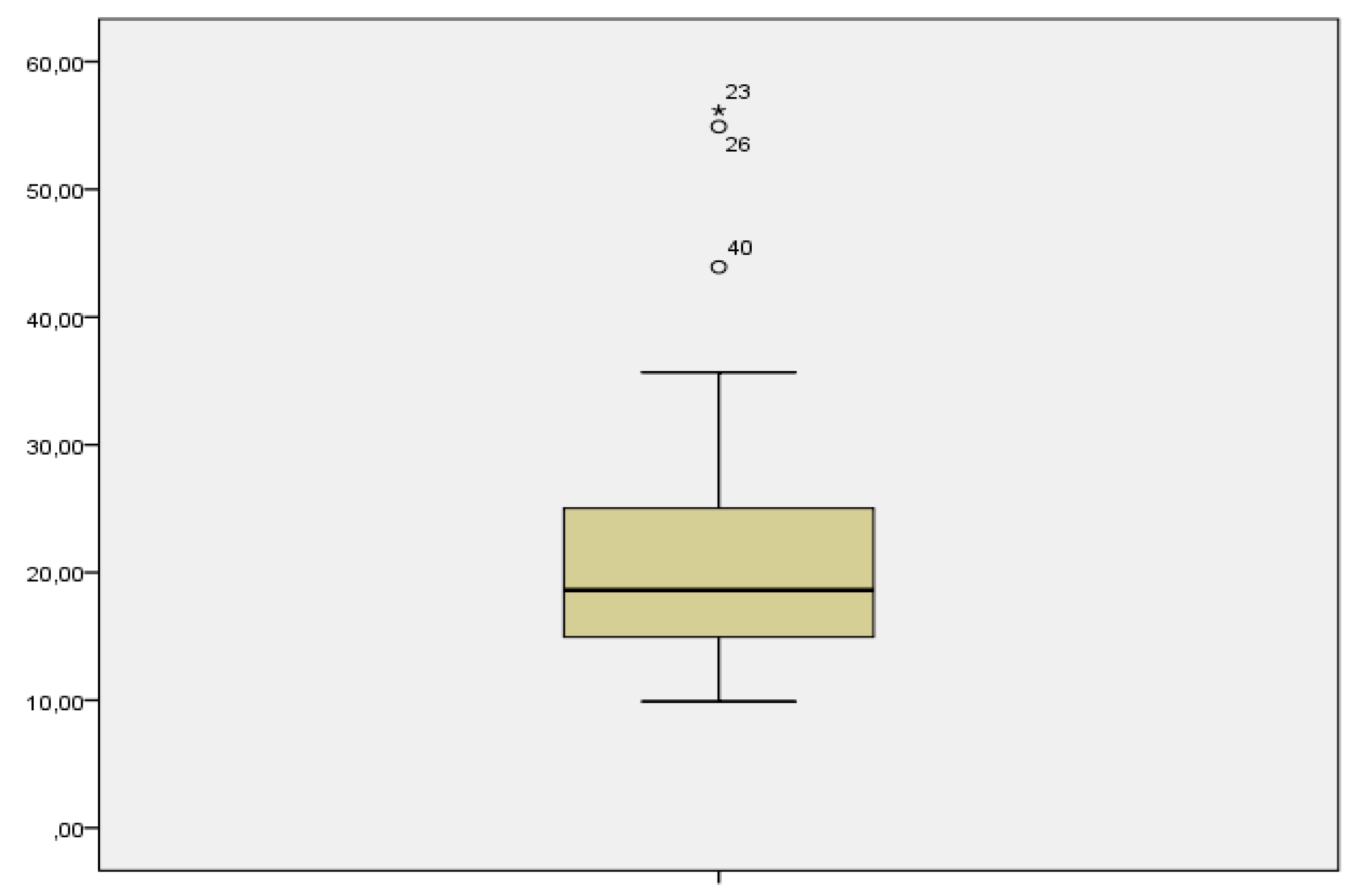
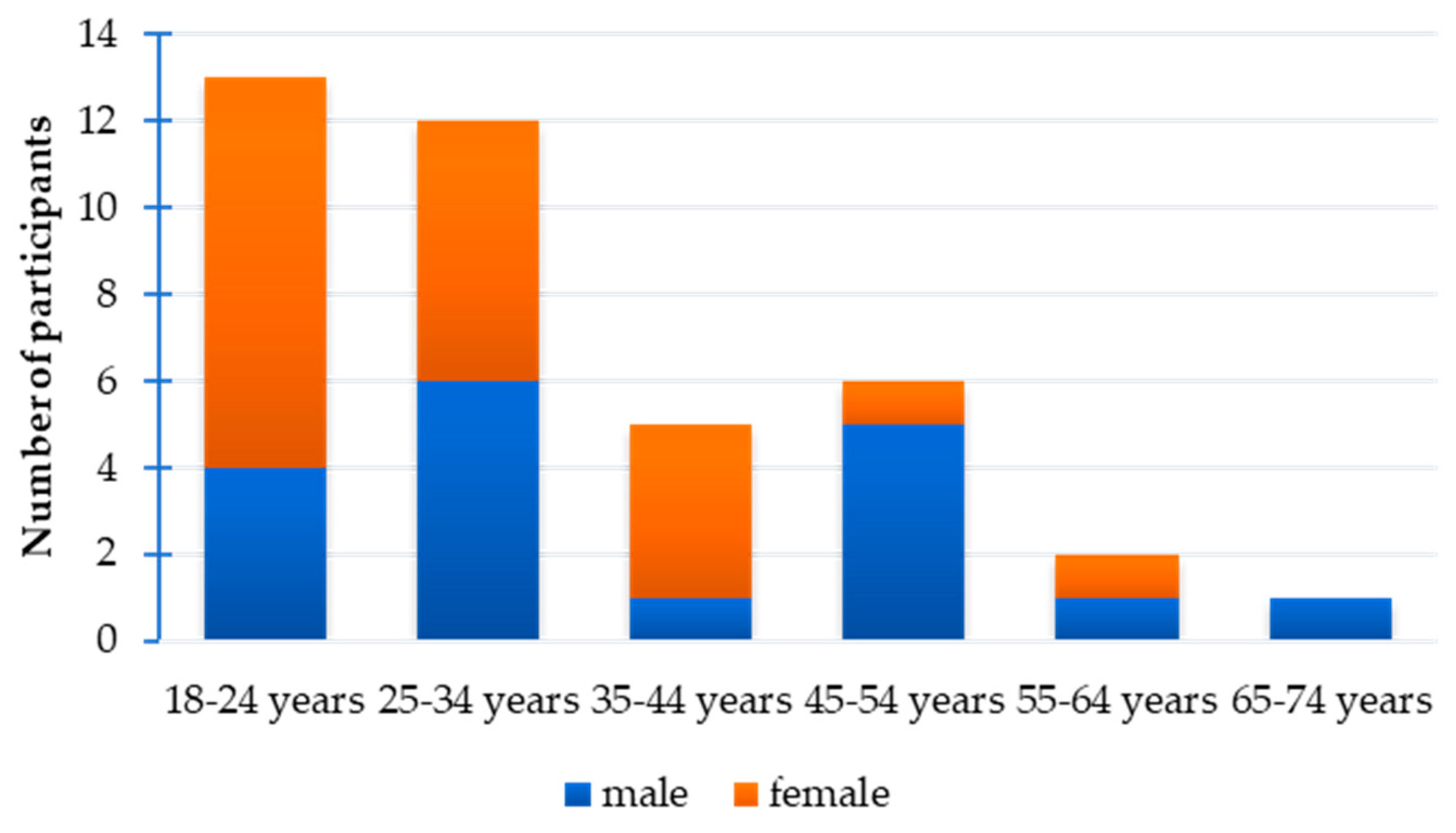
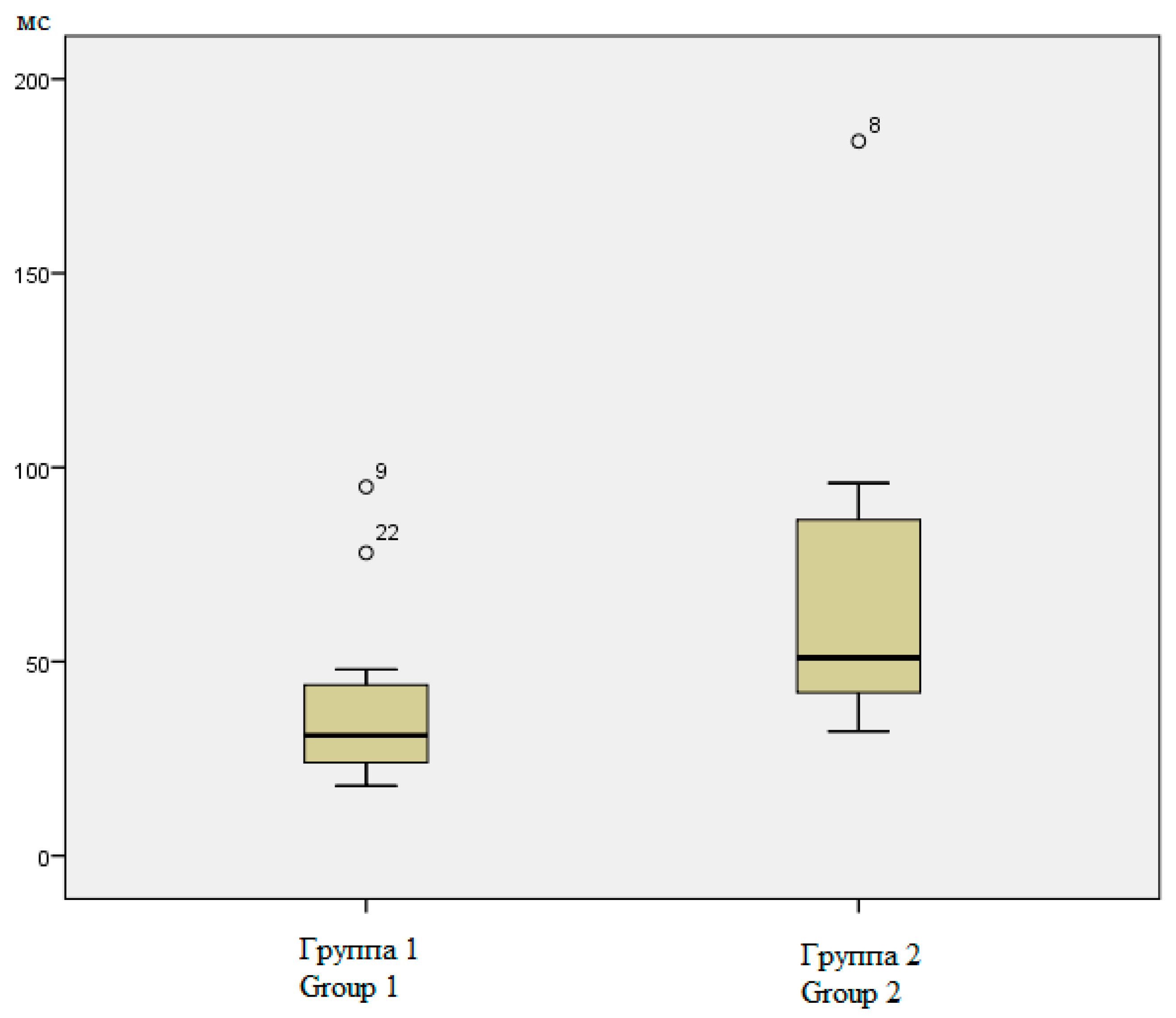
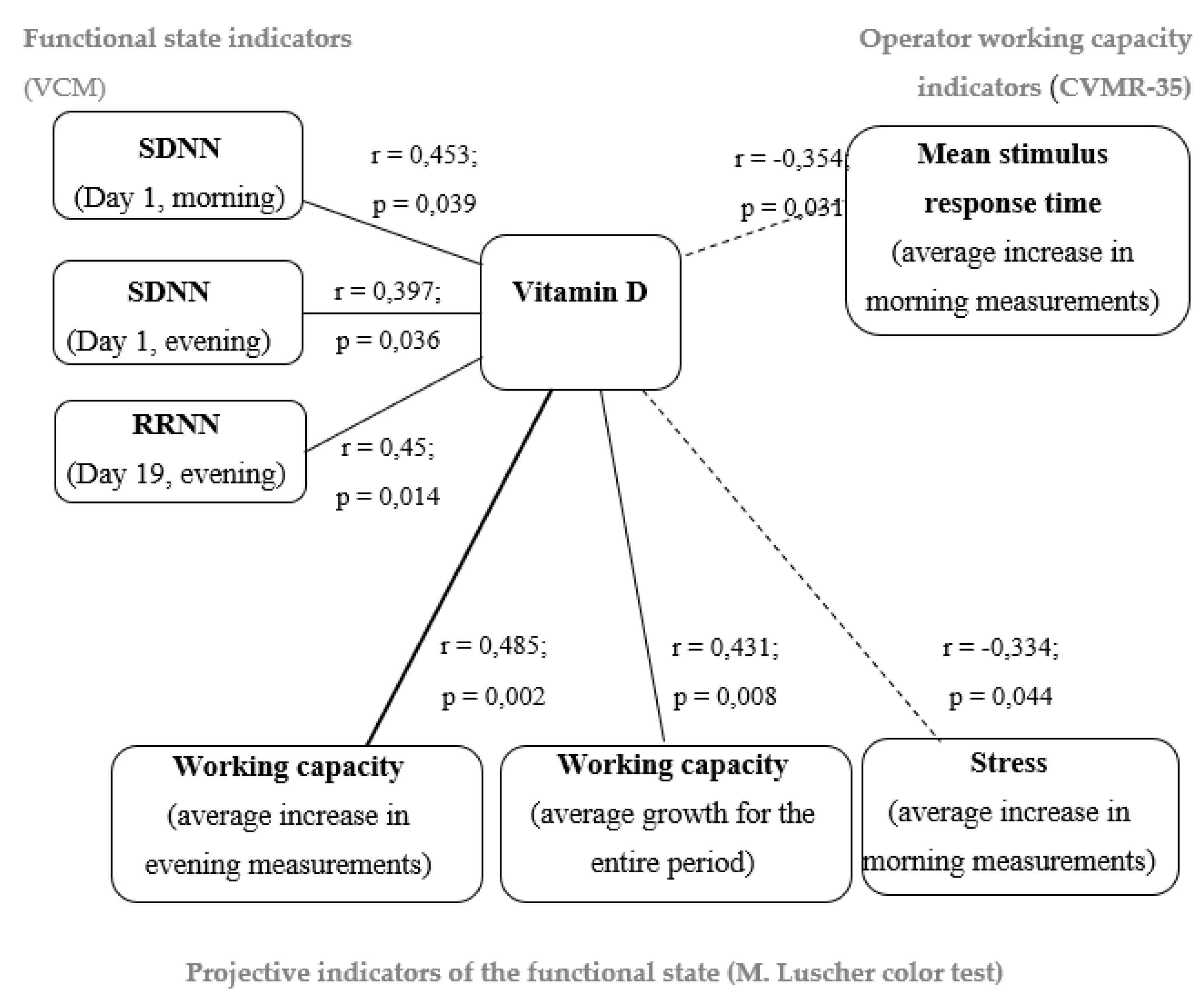
| Method | Positive characteristics of the functional state | Negative characteristics of the functional state |
|---|---|---|
| VCM | optimal and close to optimal level of the general functional state of the body | from the permissible and critical levels of the general functional state of the organism |
| CVMR-35 | medium and high levels of operator working capacity | reduced and low levels of operator working capacity |
| M. Luscher's technique | medium and high working capacity | stressful state, unproductive neuromuscular activity (SO), reduced and low working capacity |
| WAM methodology | medium and high levels of well-being, activity and mood | reduced and low levels of well-being, activity and mood |
| Gender | Percentage of the total number of men or women | ||
| Optimal vitamin D level | Insufficient level of vitamin D | Vitamin D deficiency | |
| Women | 20,0% | 20,0% | 60,0% |
| Men | 5,6% | 38,9% | 55,5% |
| Parameter | Group 1 (vitamin D value to 20 ng/ml) M ± SE |
Group 2 (Vitamin D values above 20 ng/ml) M ± SE |
Mann–Whitney U-test value | Significance of differences (2-tailed) p |
Norms |
| RRNN | 715,00 ± 27,607 | 812,13 ± 38,433 | 25,000 | 0,050 | 667- 1000 - Normocardia |
| (Day 1, morning freeze) | 38,77 ± 6,385 | 71,88 ± 17,649 | 18,500 | 0,015 | 40-80 мc |
Disclaimer/Publisher’s Note: The statements, opinions and data contained in all publications are solely those of the individual author(s) and contributor(s) and not of MDPI and/or the editor(s). MDPI and/or the editor(s) disclaim responsibility for any injury to people or property resulting from any ideas, methods, instructions or products referred to in the content. |
© 2023 by the authors. Licensee MDPI, Basel, Switzerland. This article is an open access article distributed under the terms and conditions of the Creative Commons Attribution (CC BY) license (http://creativecommons.org/licenses/by/4.0/).





